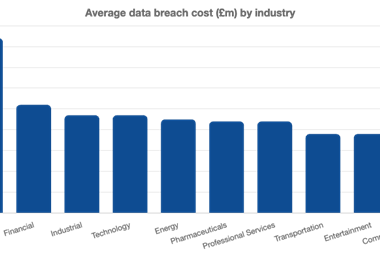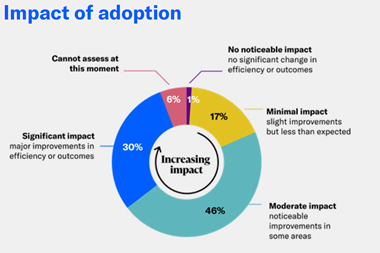"Why didn't you blow the whistle?" I asked an employee at a company riddled with fraud and dishonesty. "Because there was no one to talk to, and in any case, they wouldn't have believed me and that would have been my career finished." An all too common exchange of words, and one that I have come across in more than half of the hundreds of company frauds I have investigated.
In my experience, very few frauds and acts of dishonesty remain truly secret. There are usually one or two other employees who have a good idea of what is going on, or at least have suspicions that all is not as it seems. Both the Enron and WorldCom cases have indicated that there were employees who, for their own personal gain, turned a blind eye to fraudulent activities instead of being courageous enough to blow the whistle.
The employee I spoke with above chose not to blow the whistle. Instead, she resigned from her post, thereby destroying what looked like a promising career at the company. Six months later, she was still unemployed.
So what is it that stops us from identifying fraudsters and ridding our organisations of them? It may be a particularly British thing, but what happens time and time again is something like the following scenario.
Imagine that, two years ago, a senior manager from another division was transferred into your department. She had been with the company for most of her working life and was well known, well liked on the after-work social scene, and, importantly, had the ear of the group chairman - apparently, their brothers had been next door neighbours: a tenuous connection, but one sufficient to build a strong relationship. From her first day in the department, you knew there was something not quite right about her - always on the phone, did not seem to have much to do, but was always there early in the morning and, when not at the pub, at her desk late into the evening.
You began to suspect minor indiscretions: abuse of company assets, taking liberties with her expenses, lots of closed-door meetings with heated arguments. Her seemingly charming personality was changing; her behaviour became irrational and she became more difficult to confront without an argument erupting. And then comes the bombshell - you discover by accident that she has just received a six figure sum from the company's new IT supplier, a small, unknown outfit, very different from the company's other blue-chip suppliers.
You chat with your colleagues and exchange a few e-mails. The advice on the department grapevine is to keep your head down, not to go poking your nose where it is not wanted.
Your morale has begun to drop and although you may not realise it, your productivity has begun to suffer. You have stopped looking forward to going to work; you cannot wait for 5 o'clock to come, and the sooner you get out of the place the better.
Now, with your eyes off the ball, you spend considerable amounts of time gossiping with your colleagues; you moan and complain. Eventually, they become disenchanted and their productivity starts to suffer as well. It is like a cancer, and it slowly infects other parts of the organisation.
By now you are really bitter. Why should she have received such a sum and not declared it? Surely it was wrong? So what do you do next? There is little point in talking to the directors, who all think she is the company golden girl. In any case, they would never have the conviction to mention it to the chairman.
What do you do? You fester for a month or two and then, when you can bear it no longer, you think 'this can't continue' and you resign.
She has won! She is still there, probably lining up her next pay-off, maybe even getting a promotion along the way. She thinks she is invincible, and if everyone else is like you, she is right!
Now look at you. You are out of work, and to add insult to injury, she has just got the posting you had been up for. Now, surely, you can act, maybe an anonymous letter to the chairman, to a non-executive or even the local newspaper? No, you have put that all behind you now; you are onto a new chapter in your life (albeit an unemployed one!). More simply, you can no longer be bothered.
Using the pattern
This seems to be the standard pattern of behaviour in British workforces, to such an extent that as an investigator, I use it in the search for fraudsters. When I enter a new company to begin an investigation:
- I hunt down the departments with the highest staff turnover
- I have discussions with the HR team about disgruntled staff and obtain details of warnings issued for lack of effort and motivation
- I go and have a chat with these staff, including those that have left.
Next comes an authorised review of certain personnel files. In the above example (it was real), a review of her file would have revealed that the fraudster was shifted sideways into the new division because of a poorly performing contractor she was responsible for appointing (and from whom she may well have received a kickback).
A quick chat with the guys on the security gate and with reception staff and I am beginning to home in on the main suspects. They are a great source for finding out about comings and goings and key relationships among staff.
A review of recent expense claims and I am down to a choice of two. A well-prepared interview programme and a couple of days later, I have a confession, corroborated with documentary evidence and other witnesses. I have got my man (or, rather, woman).
We were successful in this case, but others never get this far. So what happens next in these cases? If fraudsters go unchecked, they can do real damage to their organisations. As they become more confident, they take big risks, with big consequences, and often, the damage they cause is irreparable and sometimes fatal. Massive job losses can follow and, for those businesses that are major players in the local community, often employing more than one generation from the same family, the damage to the fabric of that community can be devastating. If one or more bread winners loses their job, the family may find it difficult to recover.
Also, once a business goes to the wall, the domino effect occurs and other associated businesses follow.
If the company goes under, there are other stakeholders to consider.
Investors, shareholders and pensioners (not to mention lenders) all have a lot to lose.
There is an immediate effect on them as well as a continuing one. Lenders, having had their fingers burned once, raise the bar and make it more difficult for other businesses to borrow. They may even steer away from funding a new business with the opportunity for fantastic growth and the ability to create wealth for the whole community. Entrepreneurs can be affected too. They may feel betrayed by the fraudster, and may lose faith in their staff as well as in their own ability to judge good character and make sound business decisions. This can then lead to a loss of desire to build up a new business, again losing out on potential jobs and wealth for the community.
And finally - red tape. Large high-profile frauds will, ultimately, give rise to new legislation. An added layer of bureaucracy adds to the costs of doing business and can hinder the ability to grow.
So, the next time someone tells you that fraud is a victimless crime, take a few moments to explain to them why this is not the case.
- Sean Holohan is director business risk, Protiviti UK, Tel: 020 7930 8808
PROTECTING WHISTLEBLOWERS
- Last year, the International Federation of Journalists called for new protection for whistleblowers in the institutions of the European Union as part of a comprehensive review of transparency rules and communications policy. "The European Union is not convincing citizens that what happens in Brussels is good for them and good for the future of Europe," said Aidan White, IFJ general secretary. He said that a culture of censorship within EU institutions was leading to the victimisation of civil servants who revealed information in the public interest.
- It is not only those blowing the whistle on crime in the workplace who may have misgivings. In February, the TUC called for a change in UK law to give more protection to employees who raise health and safety concerns.
The TUC said that data from employment tribunals suggested 1,500 whistleblowers had lost their jobs since 1999, with some businesses finding it cheaper to sack a worker than to improve buildings or change working conditions.
- At a United Nations Economic Commission for Europe corporate governance roundtable on 9 February, Susan Wolburgh Jenah, vice-chair, Ontario Securities Commission, said that boards are recognising the importance of establishing procedures to help whistleblowers step forward without fear of repercussion.
"The treatment of whistleblowers is receiving global attention. Many jurisdictions are creating a direct reporting line between whistleblowers and the audit committee. A recent study by KPMG maintained that frauds are far more likely to be exposed by whistleblowers than by external auditors," she commented.



















